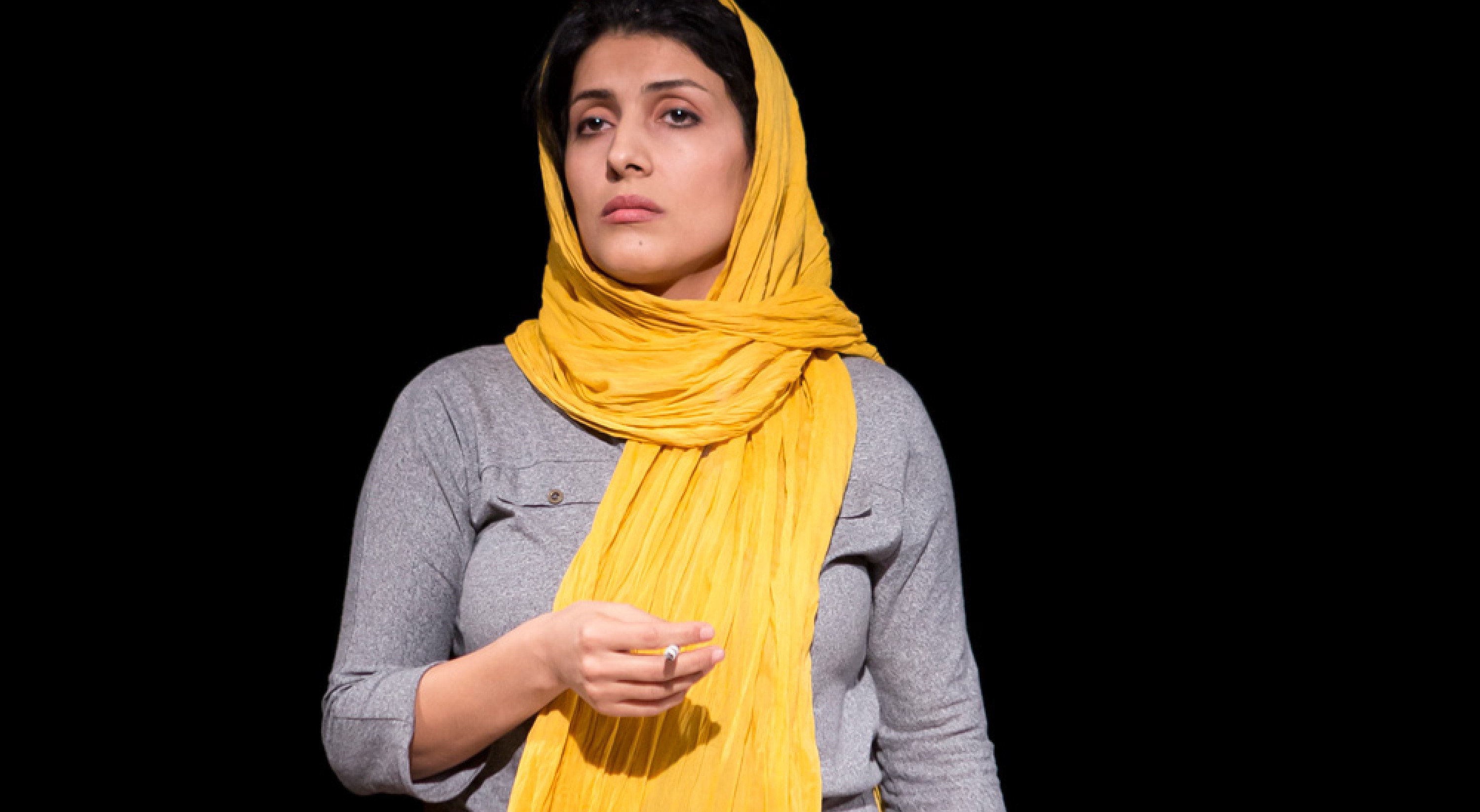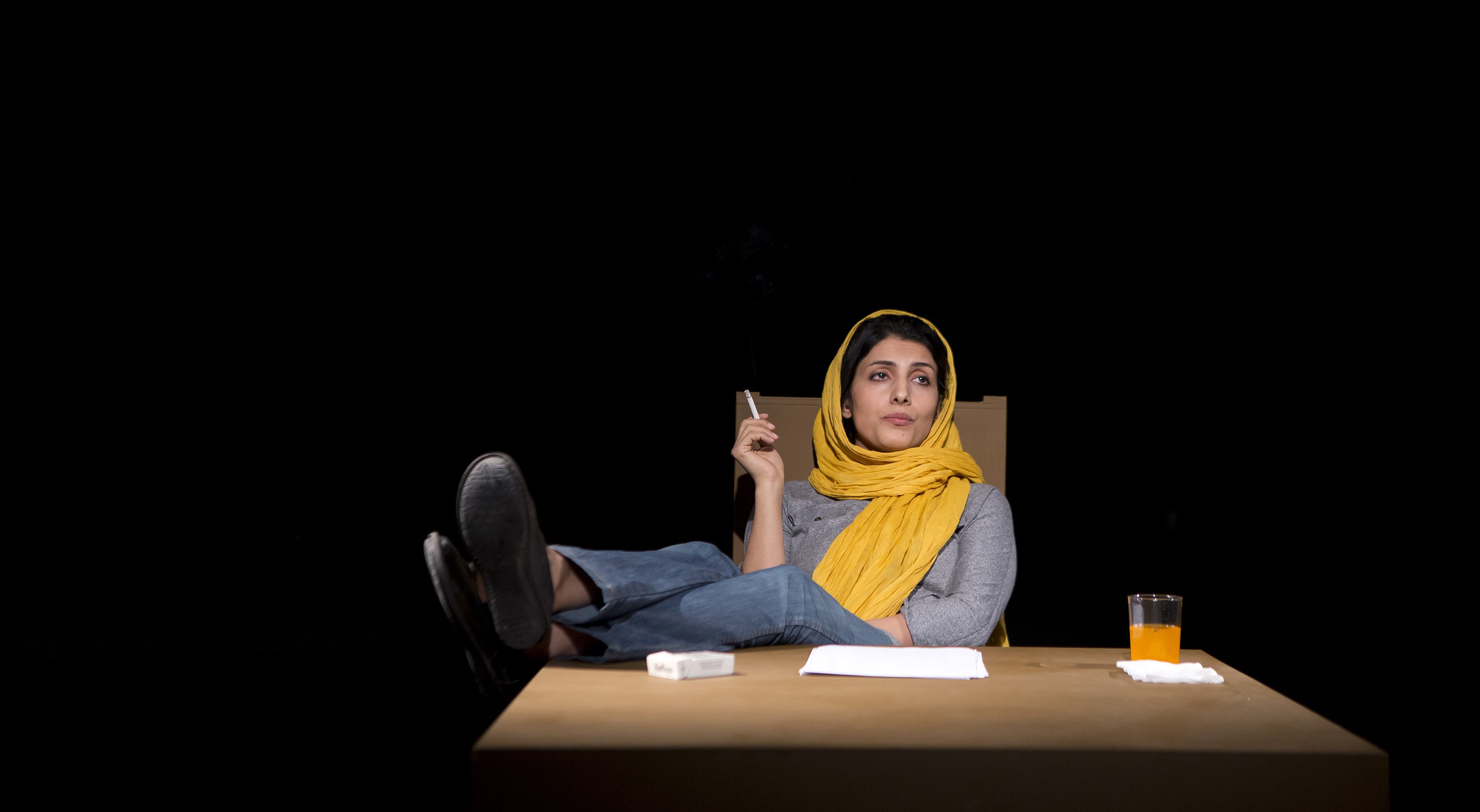Amir Reza Koohestani
Timeloss
novembernov 24 – 30
Text, directed and stage design by, Amir Reza Koohestani
With, on stage, Hassan Madjooni, Mahin Sadri and, on videos, Abed Aabest, and Behdokht Valian
Assistant director, Mohammad Reza Hosseinzadeh
Music and sound creation, Pouya Pouramin
Video and technical direction, Davoud Sadri
Costume design, Negar Nemati
Stage and subtitles management, Negar Nobakht Foghani
French translation and subtitle adaptation, Massoumeh Lahidji
Production managers, Mohammad Reza Hosseinzadeh, and Pierre Reis
Company and touring administration, Pierre Reis
A production by Mehr Theatre Group // A coproduction with Festival actOral Marseille-Provence 2013 – Capitale Européenne de la Culture ; La Bâtie – Festival de Genève // In collaboration with Théâtre de la Bastille ; Festival d’Automne à Paris // With support from ONDA // The piece was presented for the first time on 31st August 2013 at La Bâtie, Festival de Genève
In partnership with France Culture
The piece includes extracts from Dance on Glasses //
Text, directed and stage design by, Amir Reza Koohestani //
With Sharareh Mansour Abadi and Ali Moini // Choreography, Ehsan Hemat // Music, Thousand Years by Sting // A production with Mehr Theatre Group // First presented in 2001 in Shiraz, Iran
For Amir Reza Koohestani, it all starts with Dance on Glasses. First presented in 2001, this piece centered on two youngsters face-to-face in the midst of a breakdown in their relationship. Dance on Glasses marks both a departure point and also a point of reference, to which the director continually finds himself being brought back. Is it possible for the creator of a work to return to it without taking away its mystery? Timeloss plunges us into the intricacies of this “lost time”, snatches of which are all that we can grasp - in the unsaid wanderings of the mind. On the stage we find two performers, given the task of dubbing a filmed version of Dance on Glasses ahead of its release on DVD. Lending their voices to the bringing back to life of these now silent voices, these ageing doubles rehearse, quarrel and evoke their past memories. Little by little, the past interferes with the lapses in their dialogue, and their own story blends in with the one they are trying to reconstitute. Love and work-related relationships offset the various temporal reference points, to dizzying, mirror-image effect. The space transforms itself from a closed-doors one, to a dark chamber peopled with ghosts...
In his work as author and director, Amir Reza Koohestani, from Iran, carves out theatre which blends the fable with documentary elements. This enables him to put the relationships into a framework, thereby allowing the distance between individuals to be measured. His plots are based on the interplay between mirror-like effects in which questions of an intimate nature, details of our everyday existence and questions about the nature of representation, allow the distant rumble of the world around us to filter through. This takes us back to Where were you on January 8th?, presented at La Colline Théâtre National in collaboration with the 2010 edition of the Festival d’Automne à Paris, and during which the disappearance of a soldier’s service weapon revealed so much about the changes in Iranian society.
In the same place


